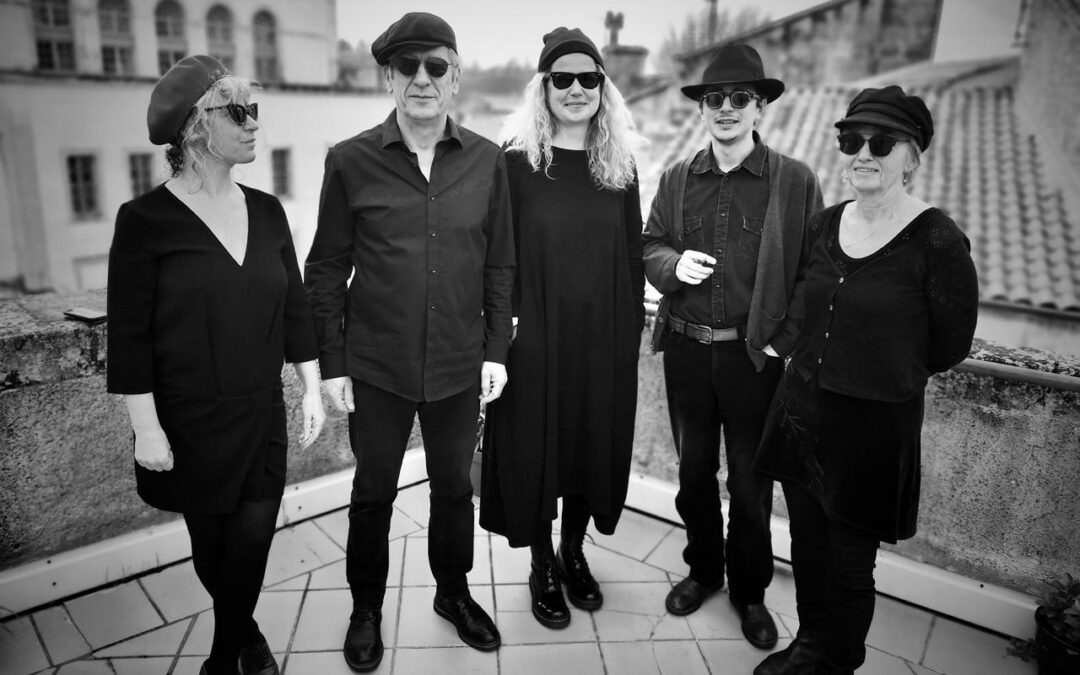Enrique Alda holds a degree in Translation and Interpreting from the University of Salamanca and has been working exclusively as a translator for twenty-five years. He has translated more than 150 books into Spanish. Over the last fifteen years, Enrique has focused his efforts on Irish literature and poetry, dividing his time between the Wicklow Mountains in Ireland and the foothills of Moncayo in Spain.
During his residency at Culture Moves Europe, Enrique is working on the translation of Histoire d’un ruisseau (1869) and Histoire d’une montagne (1880) by Elisée Reclus. Can you tell us about this project and the challenges you face?
These two books had already been translated into Spanish, but the translations were very old and, unfortunately, poorly done. I have been working with Julián Lacalle, head of Pepitas de calabaza, for over twenty years: it was he who asked me to do this new translation.
Élisée Reclus was a 19th-century anarchist, geographer, visionary, traveller, naturalist, vegetarian, poet and pioneer of ecology who advocated a harmonious return to nature. He published Histoire d’un ruisseau (History of a Stream) in 1869 and then Histoire d’une montagne (History of a Mountain) in 1880, two accounts that had a great impact and were widely read.
Histoire d’un ruisseau is a remarkable text, elegantly weaving together scientific discourse and elegiac poetry, philosophical reflection and even the beginnings of an ecological economy, long before the term was coined.
Histoire d’une montagne is a geographical treatise on mountains and their landscapes, written in a poetic style. It is a fascinating literary work, surprisingly modern, combining scientific observation with philosophical reflection on freedom and happiness; a true ode to nature, a profound exploration of the links between man and his environment.
One of the surprises of these two texts is that, although they were written 150 years ago, they remain highly relevant today. Reclus discusses the problems and situations we face today.
A particularly captivating aspect of Histoire d’une montagne is its analysis of the environmental impact of human activity on mountain ecosystems. With remarkable foresight for his time, Reclus raises questions that are still relevant today about the preservation of these unique natural spaces.
Both books are profound and moving texts that invite reflection and activism for a more just and sustainable world. The style is descriptive, always warm and poetic, but at the same time clear and simple. It should not be forgotten that this is an avant-garde work, ahead of its time, but written in the 19th century as a pleasant conversation with the reader, which in itself is a reflection of an era.
The great challenge for the translator is therefore to recreate this atmosphere in a language intended for 21st-century readers, one that is faithful to and respectful of the original text, and to revive its poetic and avant-garde style.
Why did you decide to participate in this Culture Moves Europe residency?
Translating the two books I am working on takes a lot of time, and this grant has allowed me to spend three months in France. I have been translating for twenty-five years, mainly from English into Spanish, primarily Irish authors, but I have never stopped translating books in French and have always been interested in French culture and literature.
Working at the International College of Literary Translators allows me to immerse myself in the culture, speak and think in French, and, of course, discuss my doubts with other translators.
Over the past three months, I have met several fellow translators, made friends and shared many experiences. We have organised dinners where each resident brought a typical dish from their country, and even musical evenings in a pleasant and supportive atmosphere.
Of course, we talk about translation, but also about the countries we live in, their customs and peculiarities, the languages spoken there, and the situation of the profession in those countries.
Work translated into Spanish:
Histoire d’un ruisseau suivi de Histoire d’une montagne (The Story of a Stream Followed by The Story of a Mountain), by Élisée Reclus
(Arthaud poche, 2017)
“As our knowledge and material power increase, our human will manifests itself ever more strongly in the face of nature”.
If human beings paid more attention to the beauty of nature, they would stop rushing around and pause to enjoy happiness by the side of a stream. The modest stream, the majestic river, the gentle waterfall or the imposing glacier become, in the eyes of Élisée Reclus, inexhaustible sources of knowledge, sublime manifestations of natural harmony. With the curiosity of a scientist and the wonder of a poet, he offers us his reflections on the origin of mountains and waterways, driven by a desire to recover the original simplicity of observing nature.
Why do humans not follow the example of the stream, which carves its path while adapting to the order that surrounds it? Observing nature should teach us to progress in a reasoned and respectful manner. Only then can we claim to be the most intelligent creatures on Earth. Accompanying Élisée Reclus on his walks gives us the opportunity to become aware of this.
Interview published in: https://www.atlas-citl.org/enrique-alda-culture-moves-europe/

